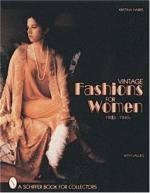|
This section contains 331 words (approx. 2 pages at 300 words per page) |

|
On Father's Day, the third Sunday in June, children young and old show appreciation for their dear-old dads—and uncles, grandfathers, and godfathers. The day serves as a symbol of America's regard not only for fatherhood but for the sanctity of the American family.
The roots of the day are imprecise. In 1910, Sonora Smart Dodd, of Spokane, Washington, wished to honor her father—a man who had raised his six children upon the death of his wife—successfully petitioned the Spokane Ministerial Association to set aside a day of reverence for all fathers. Yet Vancouver, Washington, claimed to be the first American city to officially sanction Father's Day, in 1912. Three years later, Harry Meek, the president of the Uptown Lions Club in Chicago, Illinois, was recognized as the "Originator of Father's Day" when he proposed that the third Sunday in June be...
|
This section contains 331 words (approx. 2 pages at 300 words per page) |

|




